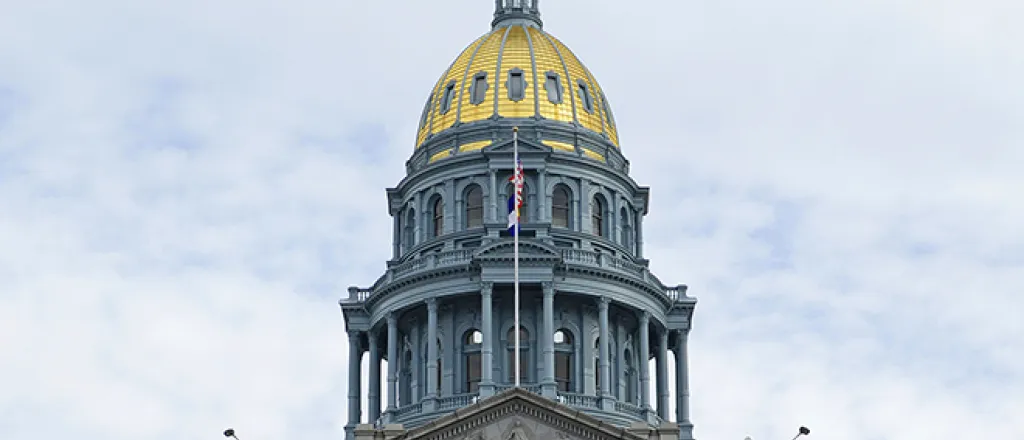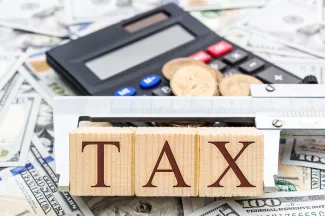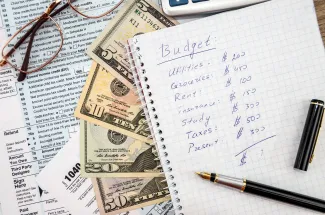
Colorado lawmakers roll out tax relief proposals on first day of special session
(The Center Square) – Colorado lawmakers convened a special session Friday and introduced several bills they hope will tackle skyrocketing property taxes.
Governor Jared Polis called for the special session after Proposition HH lost at the ballot box last week, with almost 60 percent of voters against the measure. Prop HH, which was referred to the ballot by Democrats last session, proposed lowering the state’s residential property tax assessment rate to 6.7 percent and using Taxpayer’s Bill of Rights funds to backfill lost revenue for local governments.

© iStock - Ligorko
Democratic lawmakers, who hold a majority in both the state House and Senate, as well as minority Republicans introduced several bills Friday in pursuit of tax relief for the 2023 tax year.
“Our goal in special session is clear: by providing urgent property tax relief, increasing rental assistance, and supporting hard-working families, we will deliver real results that make Colorado more affordable,” House Speaker Julie McCluskie, D-Dillon, said Friday morning.
“County assessors need to know what we are doing on property taxes so that we can move forward and send those tax bills by the deadlines in January,” she added.

Sen. Minority Leader Paul Lundeen, R-Monument, said lawmakers “have been given clear direction by the people of Colorado.”
“That direction can be summarized in three words: Honest tax relief,” he said.
Lundeen also criticized Democrats for ignoring GOP-sponsored bills on tax relief last session.
“Republicans are at the table with the voters who by 20 percent rejected Proposition HH,” he said. “The question is will enough common sense Democrats join us, the Republican caucus, and the people of Colorado at the table they the people have set.”
Key bills introduced Friday
- House Bill 23B-1001, sponsored by Democrats, would allocate $30 million from the general fund to a new grant program that would provide emergency rental assistance to “tenants who have an annual household income of 80 percent or less than the area median income and are at risk of eviction or displacement.”
- Senate Bill 23B-001, sponsored by Sens. Steve Fenberg, D-Boulder, and Chris Hansen, D-Denver, would lower the residential assessment rate from 6.765 percent to 6.7 percent for 2023’s tax year and expand the property value exemption from $15,000 to $50,000.
- SB23B-003, sponsored by Sens. Nick Hinrichsen, D-Pueblo, and Janice Marchman, D-Loveland, would make Taxpayer’s Bill of Rights refunds from fiscal year 2022-23 all the same amount, rather than a six-tiered sales tax refund. The state estimates total TABOR refunds going out for that fiscal year, but paid in 2023-24, will be $3.7 billion.
- SB23B-004, the Republican proposal, would lower the residential property tax rate to 6.5 percent after a $80,000 subtraction and 25 percent on certain commercial properties after a $60,000 subtraction for the 2023 tax year. It would also convene a special legislative task force on property taxes. The proposal would require a nearly $1.2 billion expenditure, according to the fiscal note, with $823 million from the general fund to cover lost revenue for local governments.
- HB 23B-1007, which has bipartisan sponsorship, would increase the homestead property tax exemption for seniors and disabled veterans to 50 percent of $325,000 for the 2023 tax year.
- HB 23B-1002 would expand Colorado’s earned income tax credit from 25 percent to 75 percent of the federal earned income tax credit.
A House bill introduced by Republicans would have similarly lowered assessment rates while also temporarily cutting the income tax rate to 4 percent, but the bill was postponed indefinitely.
















